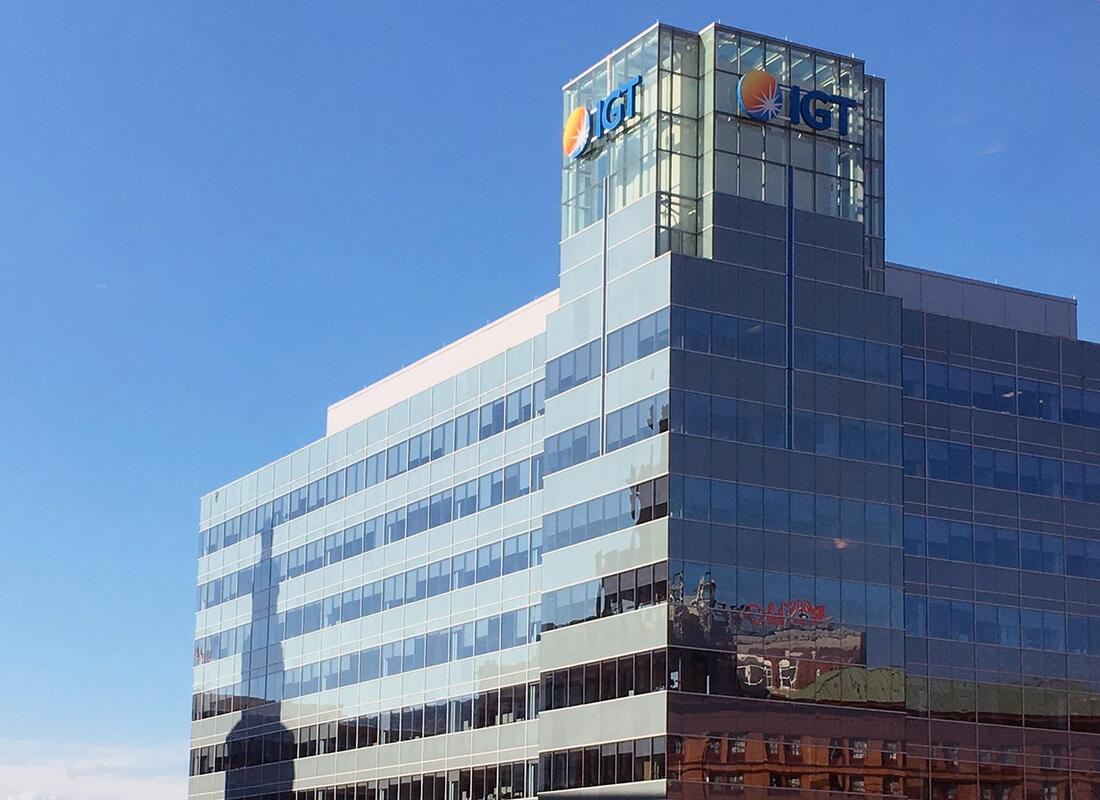|
Even with former adversary Twin River now a partner, questions remain about a proposed 20-year lottery contract extension for International Game Technology, including whether the two companies together should pay the state more. Lawmakers in the House Finance Committee Wednesday asked the two gambling companies to defend the joint venture and legislation they proposed in January that would give them exclusive rights to provide traditional lottery and casino slot machine systems. Gov. Gina Raimondo’s Department of Revenue, which ultimately controls gambling in the state, had even more pointed questions and suggested that the current deal doesn’t provide a large enough up-front payment for taxpayers. “The proposal in this bill includes exclusive management of 100% of the [video slot machines] by an [IGT/ Twin River] Joint Venture,” state Director of Revenue Marc Furcolo wrote in a letter to the committee. “Given that this proposal is for two exclusive licenses instead of one, the committee may want to consider an increase in the upfront payment.” IGT and Twin River propose paying the state $25 million over two years for the lottery contract, the same amount IGT proposed in the deal it struck with the Raimondo administration last year, a deal that Twin River opposed. Furcolo did not say how much more the joint venture should pay than IGT would have paid on its own. IGT chairman Robert Vincent told the committee he wasn’t prepared to negotiate the payment at the hearing. Furcolo’s letter, which does not take a position on the deal, also questions Twin River’s request to raise its debt limit as part of the lottery contract legislation and language that would allow it to sell and lease back its casino property. It also says Twin River’s pledge to invest $100 million in its Lincoln casino includes $36 million it is already committed to spending, making $64 million a more accurate description of the offer. Last summer, Twin River opposed the contract extension deal IGT worked out with state leaders, but after waging expensive and at times bitter public relations campaigns against one another, the two companies, with a gentle push from top lawmakers, began peace talks last year. What emerged from those negotiations was an agreement in January to cut Twin River in on the proposed lottery deal in exchange for Twin River investing $100 million into its flagship casino in Lincoln. The proposal would see the two companies form a partnership — with 60% of the stock controlled by IGT — that would control 100% of the slot machines operating in the state. The original IGT-only deal would have seen IGT control up to 85% of the slot machines at Twin River’ casinos in Lincoln and Tiverton. A consultant’s analysis of the original IGT deal commissioned by the House recommended a shorter lottery contract and concluded that Rhode Island was paying a premium to lease its slot machines instead of owning them outright. House GOP leader Blake Filippi, who advocated for the study, questioned the amount Rhode Island is paying IGT for a slot machine “central monitoring system,” whether the deal doesn’t make the companies replace enough slot machines each year, and why Rhode Island underperforms Massachusetts in scratch ticket sales. “We acknowledge this has to be a better deal for Rhode Island taxpayers and one that is better than anything that could be accomplished through a competitive bidding process,” Twin River Executive Vice President Marc Crisafulli told the committee. “We thought it essential to create a three-way partnership between the state, Twin River and IGT to enhance out ability to compete with Massachusetts and Connecticut and maximize revenues.” Patrick AndersonThe Providence Journal Comments are closed.
|
MEDIA INQUIRIES
CATEGORIES |
Learn More About Us |
Constituent Services
|
State Government |
About rhode island house republicans
In 1636, Roger Williams, founder of Rhode Island, established the first working model of Democracy after being banished from Massachusetts for his “extreme views” concerning freedom of speech and religion. Thomas Jefferson and John Adams publicly acknowledged Williams as the originator of these concepts, along with the freedom of public assembly, in the First Amendment in the United States Constitution. Today, Rhode Island House Republicans uphold the liberties designed by our Founders and preserved in our Constitution, and are the primary legislative body promoting lean government, fighting for lower taxes, and advocating for initiatives and policies that improve the economy and in turn, the lives of Rhode Islanders. As members of a part-time assembly, we are small business owners, retired educators, community activists, lawyers, farmers, military service veterans, volunteers, former local officials, retired social workers, coaches, musicians, churchgoers and board directors -- bringing these community engagement and professional experiences to our work, on your behalf, at the Rhode Island State House.
2024 Rhode Island State House Republicans | 82 Smith Street, Room 106 Providence, RI 02903 | 401..222..2259 | Email Us


